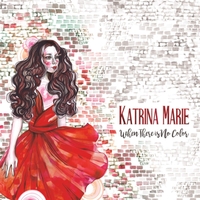 Lori Diamond is a singer-songwriter who creates lush emotional atmospherics with only her voice, piano, and sparse accompaniment. She used to be a rocker and a funky live performer, but now she is in “a chill vibe.”
Lori Diamond is a singer-songwriter who creates lush emotional atmospherics with only her voice, piano, and sparse accompaniment. She used to be a rocker and a funky live performer, but now she is in “a chill vibe.”
Diamond recently discussed her latest CD Mystery and she talked about how she manages to recreate the emotive qualities of her songs in live performances. A busy mom, Diamonds’ children could be heard in the background soliciting her attention now and then.
Relationships are what her songs are all about. The title track to her CD, “Mystery,” is about ending a mystery, letting another know who she is, now that she is ready to share more of herself. “There really wasn’t a specific person,” Diamond said. “It’s really just based on personal experience of the feeling of having been wounded and taking a chance on believing that synchronicity and faith would take care of that. It’s meant to be hopeful. It’s an invitation to fall in love again.”
The song comes across like a warm embrace, as the singer assures the other person that everything is all right between them. “That song puts me in a sultry mode because I put myself in the place of the person doing the inviting. That puts me in a place of trying to get somebody to come out of their shell. It puts me in a sultry place when I perform it. The music has that quality. The actual line, ‘There will be no mystery,’ is saying you’ll know fully. You won’t feel insecure. You’ll understand that you’re well loved.”
Diamond‘s song “Sorry” is an apology to someone who must learn to share Diamond with the new horizons she has decided she must explore. The other person may have believed his life with her was going in a certain direction but now must accept that there will be changes.
“Sorry is about the realization that you couldn’t just love that person and that’s it,” Diamond said. “You want more in life. You’re compelled to expand as a human being, so you can’t focus all your attention and expect to be happy by just identifying yourself through someone else’s experience.”
Diamond said she is not necessarily moving on from that relationship, but that is left up in the air. She is apologizing that she cannot give someone the life that she led him to believe, or that they both believed. She wants the person to understand that she needs more than that relationship. “It doesn’t necessarily mean I need another person. I need more fulfillment in general.” She can’t be all about him. “That comes with maturity because lots of gals just try to do that. You start to figure things out, like hmmm.”
“The Way You Look At Me” is a song literally about how the way she looks at her children reminds her of the way her father used to look upon her. It was when she got older and became a parent that she understood that look of fondness. She had found a picture of her father at his company’s Christmas party in which she was holding a new doll.
“He’s just giving me this look of pride and love and I just could see that he would do anything for me. I didn’t get the complexity of those feelings until I became a parent thee times over. Now that I see that, I get that. I feel those feelings that are so vivid in that photograph.”
“Alone” opens with emotional depth in her piano playing. Diamond wrote it when she was younger, engaged, and engaged too young, and had an epiphany that she had to figure out how to be alone with herself before she could be a good partner for anybody. The piano has that lonely forlorn quality that matches the lyrics perfectly. There is no method to make it match her feelings.
“I think that just happens naturally. If you start singing a melody. If you’re feeling a certain way. Hopefully, the music will just pour out of you that way, if you’re lucky. I was lucky with that song. It just fell out.”
Diamond is not classically trained, but she grew up in a musical family, her father and grandmother both musicians. Diamond cannot remember not playing. her piano, an instrument she still practices every day.
On the song “Life Provides” Diamond plays an up tempo progression of palpable peppiness. That flow of piano notes represents the spark of life she saw all around her. It was her appreciation of little miracles and the smallest things. Her lyrics too note details about sparks of precious life all around her, like picking up a baby and the warmth evoked.
“I felt compelled to write a song about gratitude cause it’s such a hugely important part of the human experience. Everybody needs to reflect on gratitude once in a while because it takes you out of your own misery. That peppy part is just a hypnotic place to go in. It makes you groove a little bit. I wanted it to feel truly happy. I think it does that. I felt happy when I wrote it. I wrote it quickly and very joyfully and trying to really express that.”
Diamond covers on her CD “Don’t Cry” a song by a local artist named Ellen Schmidt, a tune Diamond had covered at a show and then she got Schmidt’s permission to record it. Diamond liked the musical arrangement and she identified with the song as a mother and a daughter. “It visits both places. You just try to engage yourself into the lyric and take the music a step further. The music is really what makes it your own when you translate it to your own style.”
In her song “Better” the lyric that jumps out at the listener is “Stop telling Me I’m Beautiful.” She was not being conceited. She meant to tell someone that he is making her uncomfortable because she is feeling guilty about feeling adored. Beware of emotional relationships is the theme. It warns that it might manifest into a major betrayal of someone she‘s already with.
“I’m not saying it’s necessarily my personal experience,” Diamond said. “The song is about two people who are clearly having feelings for each other that cannot go through with it because they’re each involved with someone else. ‘Stop telling my I’m beautiful’ means stop doing things to make me care about you.”
Her song “Cherry Hill” at first sounds like a place she physically visits but it is a place she needs to arrive at spiritually, for her own peace of mind. The song is about someone who needs to get away for a while from all the roles she has to play, wife, mother, citizen. When the lyrics say I left my town and country, she not only meant residence and nation but also her Town And Country minivan she was driving at the time.
“A lot of mother’s comment on this song. Being a woman can be such a complex thing. There’s so much lightness and so much darkness,” she said. “When we have babies, and we’re deprived of sleep, and we are just completely overworked and don’t feel appreciated at all. You can find yourself really desperate for rejuvenation. You think, ‘Can I just get a nap here.?’
Written during a difficult time in her life, Diamond had just given birth to her second child and her sister had just passed away suddenly. She was struggling with very complex emotions and trying to process them. “Cherry Hill was my coming back to a joyful state I used to know,” she said. “Cherry Hill was recovering.” At the end of the song Diamond sings that she can’t stay too long, at Cherry Hill, which in translation means the phone is ringing or one of her children is grabbing her arm.
Diamond covers the song “A Friend Like This” that was written by her studio engineer Eric Kilburn. The two were recording her song “Better” and he mentioned that he had a similar song. It’s about two friends who are contemplating exploring further affections but just cannot because they’re both involved elsewhere .A lap steel guitar Kilburn plays on the songs gives the tune an emotional edge. “Makes it sound like moaning,” Diamond said.
Diamond closes out her CD with “Patience,” a personal reflection on the sister she lost, a song that many people can identify with, having lost loved ones. The song, though, is hopeful, in that second chances for happiness can be waiting down the road. “Love is eternal,” Diamond said.
When Diamond is performing in live settings like her beloved Java Room in Chelmsford, she has to work hard to put across emotions. The setting of The Java Room is quite conducive to listening, with pleasant artwork and lighting. There, she does not have to compete with a hockey game playing over her head. “I try to really feel the lyric and deliver it in the most authentic way,” she said. “When I sing a song, I have to go there. It’s not like reading a book. You just really have to go to that place if you want to deliver it with authenticity. People feel that. You can’t fool them.”
Diamond’s musical partner is Fred Abatelli, a solid bass player with a solid ear. “He brings his own wonderful polished style. The best thing is I can trust him and don’t have to worry about where he’s going to go. I only have to worry about my part. He listens really well. He enhances any flavor that I’m trying to create, for sure, extremely thoughtful and sensitive.”
Diamond and Abatelli have been working together professionally for three years but each live separate personal lives. She also works with singer Kim Jennings, guitarist/singer Oen Kennedy, percussionist Phil Punch, and Stuart Ferguson who has his own band. They all back Ferguson and they also play double bills with him and they perform a mix of songs from all. “They add more dimension if we need a bigger sound,” Diamond said.
Clearly, Diamond is an artist with a focus on the human condition. In short time, who she is on the singer-songwriter circuit will be no mystery.

